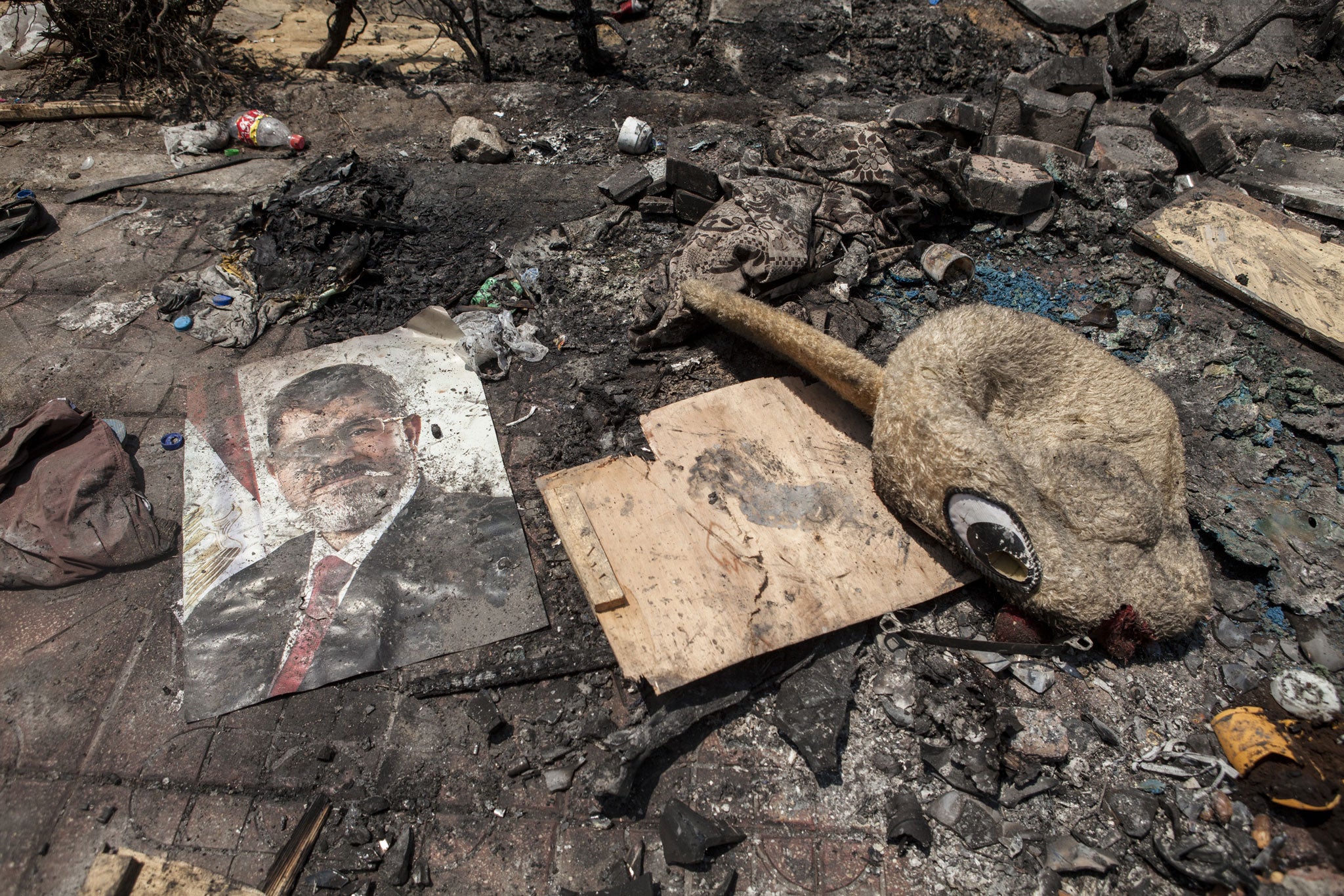This week's big questions: Was Egypt's slide towards violence inevitable? Can we expect email confidentiality?
This week's questions are answered by Egyptian writer Ahdaf Soueif

Was the slide into the level of violence we have seen in Egypt this week inevitable?
The Egyptian Ministry of the Interior only knows one mode of operation: brute force. A central demand of the January 25 revolution was to dismantle the MoI and create a responsible police force. The Muslim Brotherhood has used escalating levels of physical violence since they won parliament in 2012. The MB sit-ins were armed, and the leadership’s rhetoric was a call to martyrdom. A brutal, unreformed MoI is reasserting control over the country and the MB knows and loves the role of victim.
What was the justification for the ousting of Mohamed Morsi?
Because of the circumstances the country, Morsi promised to rule through consensus and to be an “Egyptian” rather than a Muslim Brotherhood president. He didn’t. And the result was the country rose up against him. The “justification” for his removal was that millions demanded it – and that protesters were again being killed in the streets. I believe that if the MB had stayed in power for a few more months – and if we had managed to have elections – it would have been voted out.
You say the MB “promote a sectarian discourse”. Where do you fear this could lead?
Over its 7,000-year history, Egypt’s natural development was as a diverse yet cohesive society. Its genius was that communities developed subtle relationship dynamics that enabled them to live well together and yet retain discrete identities. We’ve already lost some components of this well-integrated society over the last 70 years or so through a variety of factors. But Egypt as a society survived. Sectarian discourse is by its nature inimical to diversity. When you have a society whose essence, I would say, is its diversity and plurality then sectarian behaviour tears apart the fabric of society itself.
With Mohamed ElBaradei’s resignation, can the voices of Egypt’s liberal progressives ever be heard?
Of course, if you listen. Mohamed ElBaradei’s is an important voice, and it’s the best known in the West, but there are many more progressive voices. And they are very loud and clear. And some of them use English. People who actually want to hear that voice can start by tuning in to madamasr.com, to mosireen.org and to egypt.jadaliyya.com and to tahrirsquared.com. And while ElBaradei has resigned, he hasn’t said he’ll be quiet.
Isn’t the reality that whoever is nominally in power, the military will always ultimately decide the country’s fate?
No. Not “always” and “ultimately”. If we were to believe that then there would be no point in having a revolution, in trying to set the country right. So, maybe that’s the way things are at the moment, but it need not and should not always be so. And our job, as Egyptian citizens, is to carry on protesting and working and thinking and theorising and agitating until we get beyond the heavy inheritance of the last several decades and manage to establish a functioning, modern, civilian, decentralised, humanist way of running our society. And we have our 18 days in 2011 to inspire us.
How should the West – and specifically the US – respond to the crisis in Egypt?
I don’t know that there’s a lot of point in thinking about this. The US believes its interests are best served by keeping Israel in top dog position in the region, in maintaining and strengthening its arms and intelligence industries, in dominating food supply chains and in using the region – my region – as a threat to keep its domestic population submissive and happy to have their civil rights abrogated – as long as they can carry guns. If I were to say the US should cut all aid to Egypt now – who would listen? Apart from Egyptian intelligence?
Talks have finally resumed between Israel and Palestine. Do you see any hope of a resolution that both sides can be happy with?
Not when the business of the talks is to talk. “The Peace Process” long ago became an end in itself – a floating island of posh hotels and designer clothes and VIP lounges and chauffeured limos and handshakes and photo-ops. Actually its one relationship with the reality on the ground is that it provides cover and creates space for that reality to become more unjust and more potentially explosive. Netanyahu talks peace and authorises – at the same time – an expansion of settlements. Abu Mazen talks peace and provides Israel with a buffer between itself and the Palestinians it’s dispossessing.
You are on Gmail. What do you make of Google’s reported assertion this week that Gmail users have “no reasonable expectation” that their emails are confidential?
As soon as I have the time to research where I should go I will leave Gmail. If they have breached our confidentiality, I don’t understand the logic: when we used the postal service it was assumed that letters were confidential; it was accepted that steaming open someone’s letter and reading it was wrong. When governments censored mail they stuck a notice on the envelope to inform us that our mail had been opened. So yes, we should expect our mail to be confidential.
Ahdaf Soueif’s books include ‘Cairo: My City, Our Revolution’, published by Bloomsbury. Her novel ‘The Map of Love’ was shortlisted for the 1999 Booker Prize
Join our commenting forum
Join thought-provoking conversations, follow other Independent readers and see their replies
Comments
Bookmark popover
Removed from bookmarks